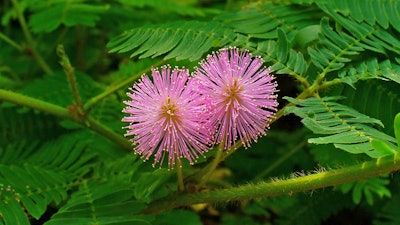
Scientists already know that plants are highly sensitive to touch of any kind and even have a word for this phenomenon—thigmomorphogenesis. If you’ve ever touched a Mimosa pudica (also known as the sensitive plant), you have already witnessed this phenomenon first hand: The Mimosa’s fan-like leaves close up like, well, an old-school handheld fan.
But most of the time, the effect is not visible. Or not immediately visible. A paper recently published (December 8) in the Plant Journal found that touching plants triggers such a dramatic response in their hormones and gene expression that it could substantially inhibit their growth.
The team stroked thale cress (Arabidopsis thaliana), a weedy plant in the mustard family, with soft paint brushes and then analyzed the plants’ biological responses.
“The lightest touch from a human, animal, insect or even plants touching each other in the wind triggers a huge gene response in the plant,” Jim Whelan, a biologist at La Trobe University in Australia and an author on the study, said in a statement. “Within 30 minutes of being touched, 10 percent of the plant’s genome is altered.”
To read the full original article, please click here.



















